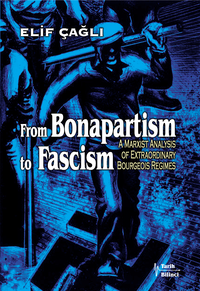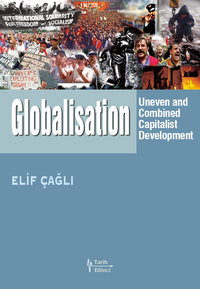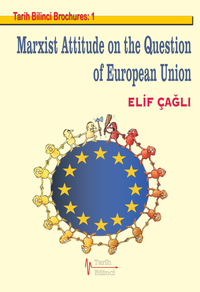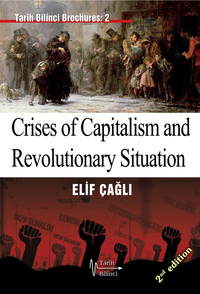
In recent weeks, controversies over a new “solution process” have dominated the agenda. Although it is said that the process has been prepared for a long time at the state level, the fuse of the debate was lit by Bahçeli’s gestures of sympathy and his outstretched hand to the members of the DEM party at the opening of the new parliamentary term. What really fuelled the debate was Bahçeli’s invitation to Öcalan to come to parliament and make a speech in his parliamentary caucus speech. However, the fact that these “agenda-breaking” statements and gestures were followed by armed actions, bombings, new arrests of politicians and the illegal dismissal of elected mayors and the appointment of so-called trustees in their place shows from the beginning that the heated political process will not follow a straight course.
It seems that the rapid developments that have come one after the other have had an overwhelming effect on a large part of society. Everyone is trying to understand the meaning of this initiative announced by the partners of the fascist regime and to take a position. Is a new “solution/opening process” starting? If so, what are its reasons, dynamics and aims? Who is making what calculations? These and similar questions are on the agenda of all political actors, commentators and society in general. Since the state has gangrenised the Kurdish problem with its long-standing policies of unlimited oppression and extermination, and the chauvinism it has fomented as an invariable part of these policies, different segments of society are experiencing bewilderment, anger, and gulp at the same time.
After decades in which chauvinist frenzy knew no bounds, the gestures of the leader of the MHP, one of the most prominent perpetrators of this frenzy, could not fail to raise eyebrows. Perhaps the most striking aspect, which suggests that there is a plan, is that the initiative was first announced not directly from the mouth of the AKP, but from the mouth of the MHP, the main address and symbol of anti-Kurdish nationalism.
First of all, it must be underlined that it is not possible to know exactly what is being planned and what calculations are being made in the deep chambers of the fascist government. Only a few people at the top and in the back rooms know these things. For this reason, it is of great importance not to fall into the speculative whirlpool of predictions and comments that surround the media. Because most of these comments and predictions are characterised by a thousand and one defects ranging from manipulation, wishful thinking in which intentions and expectations are substituted for facts, to the eagerness to compete for journalistic careers.
What’s going on?
Without disregarding all these, it is possible to identify some main lines of the current developments that are outside the realm of speculation. First of all, it is necessary to see that the launching of an initiative that would normally cause the fascist power components to lose ground and provoke a reaction among their own base shows that the regime has a serious problem. Why is a party like the MHP making such a response provoking move as to talk about Öcalan coming and making a speech in the parliament? It is reasonable to think that some important changes are aimed by this. Obviously, the regime needs such extraordinary steps, which risk provoking reactions, in order to maintain its existence.
There is no doubt that the aim of the government is to (at least partially) win over or pacify the Kurdish masses and the Kurdish movement. In the statements made in this process, especially by Erdoğan, the “internal front” is emphasised as a key concept. In other words, the fascist government needs more than the current composition of the alliance with regard to the developments it is planning. What do they expect? It is not difficult to see that there are two main points. The first is the situation created by the development of the war in the Middle East, especially in the last year, and the second is the changes that need to be made in order to maintain the regime under the leadership of Erdoğan by further consolidating it constitutionally.
On the Middle East front of the ongoing imperialist world war, a great escalation has taken place in the last year and the war has reached a new level. The unrestrained aggression of the Israel-US in the region has destroyed the most important part of the long-time leadership cadres of structures such as Hamas and Hezbollah, which are supported or patronised by some countries of the region, especially Iran, and the scope of this campaign has reached to directly hitting Iran in Tehran. Iran has suffered serious blows to the pillars of its regional influence, from Palestine to Lebanon, Syria, Iraq and Yemen. These blows mean that the big imperialist powers like Russia and China, which support it in the regional conflict, have also been hit at the current stage. Taking the Hamas attack on 7 October 2023 as an opportunity, the Israel-US are reshaping the region in flames.
In this process, in which Iran is being targeted more and more directly and is not able to respond effectively to the blows it has received, it can be said that the Turkish government is trying to review and update its position in the imperialist war process taking into account these changes in the situation. The pens of the regime in the press keep saying that the ground is being reshaped in the region and that it is necessary to act accordingly. In order to convince the society in this direction, they propagate with special emphasis that Turkey is being targeted by Israel.
One meaning of the reshaping of the ground in the region is the emergence of new opportunities for the Kurdish movement. Since the Israel-US, which is gaining positions in the region, is also the main supporter of the statelet in Rojava, it is clear that these developments mean a danger for Turkey’s previous positions. Considering that the Assad regime in Syria, which is supported by Iran, is receiving its share of the Israeli attacks and is not able to respond to them, it can be seen that the situation in Syria may come up again in the framework of the war.
It is seen from many statements that the Kurdish movement also reads the developments within this framework. An example of this is the statement made by Ilham Ahmed, co-chairman of the Department of Foreign Relations in Northern and Eastern Syria:
“The anti-Israeli front is gradually losing. This war will not be limited to Lebanon or Gaza; it has already expanded... The region will witness significant changes since the Second World War... Some of them will take place through elections, some through wars. As a result, the entire region will witness various changes... Israel is targeting Hamas, Hezbollah and Iran wherever they are present; it will also be targeted in the Syrian geography. In such a situation, it is essential to move towards a solution... There is a comprehensive plan against Iran, Hamas, Hezbollah, the Houthis and other parties loyal to Iran. Within the framework of this new plan or the redesign of the Middle East, those parties that cannot keep up with this phase and make changes and read this situation correctly will be targeted one after another...”
People and organisations with very different political views make similar assessments. It is also significant that the spokespersons of the fascist regime in Turkey, far from taking a position on the side of Iran, despite the Israeli aggression, make moves and attitudes that make it clear that they are happy with the blows that Iran has received from different sides. In fact, the director of TRT-Farsi, which was set up to broadcast into Iran, stated publicly that “we have to disturb Iran a little”. The regime’s anti-Iranian approaches are noteworthy in such a flaming process in which Iran is being targeted by Israel and the USA.
In summary, it would not be wrong to think that the regime is in an effort to reposition itself in the light of the new process in the region and that it is seeking some reconciliation with the Kurdish movement within this framework. However, it is also clear that in this search the regime tends to give as little as possible to the interlocutor, but to take it for itself. This explains the problematic way in which such an initiative, which is already highly contradictory in nature, has been launched.
An imperialist world war is being waged in its own style and the reshaping of the ground in the Middle East, one of the most important fronts of this war. Although this is the case, trying to reduce these new initiatives of the regime to Erdoğan’s personal power calculations is a misleading and narrow perspective. With this initiative, the regime is trying to carve out a path for itself in the region, which is in flames, and also wants to maintain its existence with new constitutional arrangements.
Although it is not known what the plans of the regime are, it has become clear from the beginning that a process full of contradictions is taking place. While two of the three main components of the regime seem to be the owners of the process, the Eurasianist-Ergenekonist tendencies (as in the case of the Perinçekists), which we can call the third element, openly oppose it. The course of action of these forces is uncertain. It is also unclear what the calculations of the regime forces are, which claim to continue the process despite important incidents like the TAI attack. These will become clearer as time goes on. On the other hand, basic realities such as the international character of the Kurdish question and the fact that the region is a field of conflict between all major and regional powers automatically increase the contradictions of such processes.
The contradictory nature of the process became clear as soon as it started. On the one hand, the hand of peace was extended to the Kurds; on the other hand, Rojava was bombed under the pretext of the TAI attack. At the same time, the mayor of Esenyurt, who won the election as a joint candidate of the Kurdish movement and the CHP, was imprisoned on fabricated charges and a trustee was appointed to the municipality. In the following days, trustees were also appointed in the municipalities of Mardin, Batman and Halfeti. Ocalan, who was allowed to meet his family after 44 months of isolation, was banned from meeting his family again. This whole process could be the scene of moves that, on the one hand, talk about peace and brotherhood and, on the other hand, try once again to divide the opposition over the Kurdish question and to stir up a new wave of chauvinism in the country.
Principled attitude on the Kurdish question
In such a complex picture, hasty interpretations and attitudes should be carefully avoided. Of course, we cannot stop ourselves from trying to understand what is going on, but it must not be forgotten that the Kurdish question is a national question and the basic programme and approaches of Marxism on the national question must not be forgotten.
As Marxism states, the national question is a bourgeois-democratic question in its content. The revolutionary working class supports the historically just national democratic demands of the oppressed nation. Because the relationship between the oppressor and the oppressed nation has always been one of the painful problems preventing the unity of the working class. At this point, overcoming the national arrogance of the workers and labourers of the oppressor nation is of fundamental importance. Therefore, the class-conscious workers of the oppressor nation support the solution of the national question in accordance with the just and legitimate demands of the oppressed nation. This does not mean supporting every tactical step of the movement of the oppressed nation. What the communists of the oppressor nation support is essentially the national democratic rights and cause of the oppressed nation. If a national movement sets itself concrete goals such as autonomy, federation, confederation, etc. and acts in this direction, it is not necessary for the communists of the oppressed nation to say anything more on this issue in principle.
On the other hand, the interlocutor of the oppressed national movement is, by definition and nature, the oppressor nation-state. And within this natural framework, oppressed national movements try to settle the issue through negotiations with the oppressor nation-state, as in various examples in history. The aim of the oppressed nation movement is not to change the social order on the oppressor side, but to obtain an administrative status based on national identity, such as an independent state, federal state, confederal state, autonomy, cantonal autonomy, etc. in the geography of the oppressed nation. Today, as far as the Kurdish question is concerned, examples of this can be seen in Iraqi Kurdistan or Rojava. Therefore, in spite of all the bloody wars, in spite of the great suffering, in spite of the great price paid, negotiations are taking place at different stages of the struggle. Even though the nature of the process in Turkey today is not completely clear, it is the nature of the national movement to negotiate with the state and the governments.
The Kurdish question in Turkey is a burning issue that needs to be resolved. Whatever the final steps will be, it is urgent today to release the political prisoners, especially the leaders of the Kurdish movement, to revoke the illegal trusteeship of the municipalities, to reinstate the elected municipal administrations and to stop the expansionist war policy at home and abroad.
Source:
link: Levent Toprak, Debates of New Opening and the Kurdish Question, 4 November 2024, https://enternasyonalizm.org/node/643
War Expands: Ukraine, Palestine, and now Lebanon
Trump’s Win and the Crisis of Capitalism






